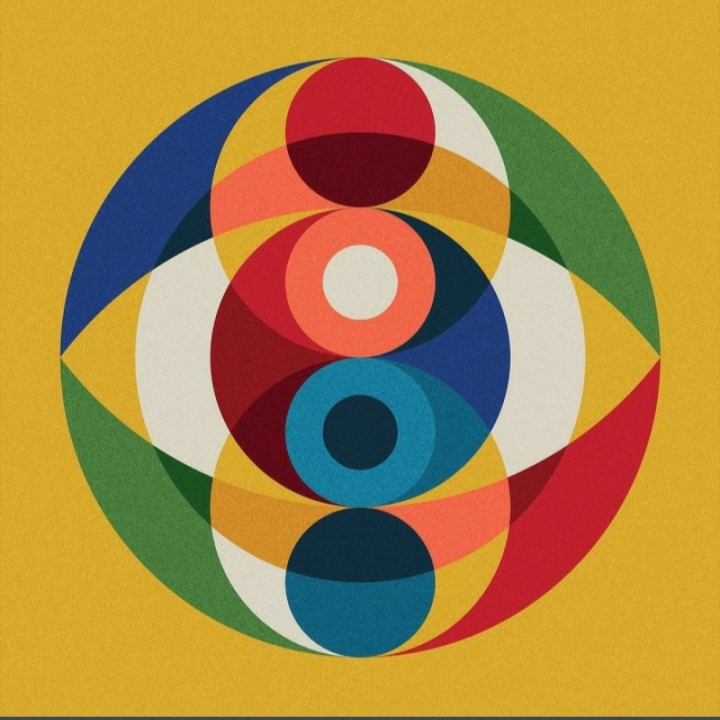And why is the W silent anyways?
because ONE stole it.
Oh-neh
Twah
Three is fine
Fah-oor
Feevey
oh-neh
Twah
Teh-hree
Fah-oor
Fihv-vehOwn
Twoah
Three
Fower
Fihv
The ⟨W⟩ is silent now, but it wasn’t until 1500 or so. Back then the word was pronounced /two:/; it would almost rhyme with contemporary “toe”. But then that /o:/ became /u:/ (the modern pronunciation), due to the Great Vowel Shift, and since /w/ and /u/ are really similar they fused together.
@FourPacketsOfPeanuts@lemmy.world mentioned that in a few associated words that ⟨W⟩ letter still represents an actual /w/ phoneme, note how the following vowel is different - that blocked the “fusion”.
I thought it was the ‘w’ that had made the sound all along, perhaps modified by the ‘o’. The ‘o’ then became a schwa or an unnecessary similar sound and was then dropped as redundant. “hwo” followed the same development, but we spell that “who” these days.
We know that the modern /u:/ is not from that old /w/ because other words followed the same change - even words without /w/, like “moon”, “poop” (yup) or “boot”. In fact it’s how the digraph ⟨oo⟩ became associated with the sound.
The case of “hwo”→“who” is a bit more complicated. As you said the “wh” digraph used to be “hw”; the change happened in Early Modern times, and it was likely for readability - less sequential short strokes = easier to read. People around those times did other weird stuff like respelling “u” as “o”, as in the word “luue”→“loue” (modern “love”), for the same reason.
However, later on that /hw/ sequence of phonemes started merging into a single sound, [ʍ]: like [w] you round your lips to pronounce it, but like [h] you don’t vibrate your vocal folds. And if that [ʍ] happened before a rounded vowel - like [o:] or similar - it was reanalysed as a plain /h/. So for words like “who”, it’s like the “w” was dropped, just like in “two”, but in a really roundabout way.
And, before non-rounded vowels, that [ʍ] still survives in plenty dialects; for example, “when” as either [ʍɛn] or [wɛn]. This change is recent enough that you still have some speakers in NZ and USA who use [ʍ].
I guess my confusion comes from the fact I’m from a place that only within the last 100 years or so has all but lost the original “hw” in “correct” speech, except in “who”, and I was thinking that the ‘w’ had to have been preserved, especially if the ‘h’ was.
There’s also that the ‘w’ hasn’t vanished in “twenty” (or “twain”, etc.).
No worries - plus the whole thing is damn counter-intuitive, both “sounds fusing together but still conveying two phonemes” and “that sound was analysed as one phoneme, now as another” are kind of weird.
Curiously in words related to ‘two’ the W is often pronounced!
Twin, Twixt, Between, Twelve etc
Oh. My. God. I am so disappointed in myself that I never realized these words were all related before. Thank you for this gift.
A few less-obvious associations, just for fun:
- Just like “the house” /s/ is “to house” /z/, “the glass” /s/ is “to glaze” /z/
- Tiw’s Day, Wotan’s Day, Thor’s Day, Frigg’s Day. Note: Tiw, Wotan and Frigg are the native names for Norse Tyr, Odin and Freyja.
- “Flee”, “fly”, “flow” are all related.
- The “mus” in “muscle” is a borrowed cognate to native “mouse”.
By the argument, is the w in “two” actually silent? What would it sounds like when pronounced? I think it would sound like “two” already does.
It would sound like “twu” as in “twu wuv”
Lol.
OK, Impressive Clergyman!
Mawwiage!
It sounds exactly like “to” which means the w is silent.
It is not pronounced at all like any of the other example words given.
I don’t necessarily think so. If the W was pronounced, I think it would sound something more like ‘tawoo’ or ‘teewoo’
twoah
hawk twoah
Spell out that thang!
I wonder if perhaps an older dialect used to pronounce the W. Lots of words have changed spelling or pronunciation over the years, so I’m curious if that might be the case with “two”, too.
I wonder if perhaps an older dialect used to pronounce the W.
That’s correct, and it isn’t even that old - based on the [o:]→[u:] change it should be from 1500 or so. And the modern Scots cognate ⟨twa⟩ /twɑ:/~/twɔ:/ still has it.
Side question?
Does twelve basically mean two eleven?
Twelve’s root is in meaning “two left”. And similarly eleven’s origin is meaning “one left”. In both cases left over from ten, the base unit of counting.
Interesting. This sorta makes sense actually.
Curious though, do you have a reference link?
Twain.
“He split Robin’s arrow in twain!”
The last time I was with a woman it was actually twoo, it was quite magical, I tell ya.
Tuwu, what’s this?
UwU
The U is silent
W
Wait until you learn about words starting with a silent p, like pterodactyl and ptoilet.
ptoilet?
That’s gonna phuck with my sychology!
We can thank the Greeks for that.
Greeks, pthank you!
So, basically the owl from the tootsie roll commercials.
One…ah-ToWHO…three!
crunch
It is sometimes done in German. The word is Zwei, but it’s somewhat common to say Zwo instead for clarity. The w is pronounced.
I guess the" tw" sound isn’t used as frequently in English. It happens in between.
The W isn’t silent, it has a decoy hiding it. The real W is after the o.
I’m going to just drop this here (be sure to watch to the end):
That’s going to morph into ‘dva’ hella fast as that ‘t’ is clunky to pronounce.
Without the silent W, it’s just “to”, which sounds exactly the same as “two”
I probably didn’t title my post properly. My bad, seems most people got my point.









